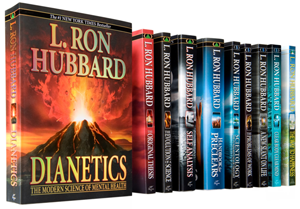Religious Literature
- Becca

- Oct 26, 2020
- 3 min read
Updated: Jan 30, 2021
Non-canonical Bible Books
Book of Jasher
A lost text reffered to in Joshua 10:13:
And the Sun stood still, and the Moon stayed, until the people had avenged themselves on their enemies. Is this not written in Sefer HaYashar?
Sayings of the Seers
A lost text referred to in 2 Chronicles 33:19. The passage reads:
"His prayer also, and how God was intreated of him, and all his sin, and his trespass, and the places wherein he built high places, and set up groves and graven images, before he was humbled: behold, they are written among the sayings of the seers."
Book of Enoch
The Book of Enoch is an ancient Hebrew apocalyptic religious text claimed to have been written by the great-grandfather of Noah. It is not part of the biblical canon used by Jews, apart from Ethiopian Jews. Most Christian denominations and traditions may accept the Book of Enoch as having some historical or theological interest and while other Christian groups regard it as non-canonical or non-inspired.
It is a more detailed look at the events preceding Noah's Flood. Talks about Nephalim and names the angels who fell to earth. Makes them kind of sympathetic.
Why Are They Not Canonical?
Some of the books are lost.
The content of the Book of Enoch contained detailed descriptions of fallen angels which would be a reason for rejection from the Hebrew canon. By the 4th century, the Book of Enoch was mostly excluded from Christian biblical canons, and it is now regarded as scripture by only the Ethiopian Orthodox Tewahedo Church and the Eritrean Orthodox Tewahedo Church.
Religions With Their Own Holy Books
Scientology
Dianetics: The Modern Science of Mental Health is the most well-known book of Scientology. It establishes the reactive mind, which is a concept that a portion of the human mind that is composed of impressions of past events of pain and unconsciousness, which he called engrams. He claimed that this can cause physical ailments.
"What can it do? It can give a man arthritis, bursitis, asthma, allergies, sinusitis, coronary trouble, high blood pressure and so on, down the whole catalog of psychosomatic ills, adding a few more which were never specifically classified as psychosomatic, such as the common cold." — L. Ron Hubbard (Dianetics: The Modern Science of Mental Health, 1999 paperback edition, pg. 69)
Jehovah's Witnesses
Jehovah's Witnesses have their own translated version of the Bible. In addition, they also have a magazine called the Watchtower which is produced at their Bethel branch offices/facilities (where people live and work).
The Church of Jesus Christ of Latter-day Saints
Book of Mormon is the holy book of LDS. They claim it contains writings of ancient prophets who lived on the American continent from approximately 2200 BC to AD 421. According to Joseph Smith, he had visions that led him to find ancient engraved golden plates which he then translated.
Reflection
It seems like books are used to enforce religious viewpoints. Books are edited from larger works or retranslated or new books are straight-up created to construct certain narratives. After looking at other religions holy books it got me to reflect on my own experiences with religion.
I was raised as a Jehovah's Witness and still have family within the religion. I remember from early childhood how there would be special children's books for us that had quite graphic images. For years I had deep fears of the end times, spurred on by these horrible painting. I've talked to other ex-witnesses who remember the same images.
While being encouraged to share literature with others, regardless of their personal beliefs, we were heavily discouraged from consuming other religious text ourselves.
I strongly believe that these techniques were used to manipulate us and to keep us from leaving the religion.
I would like to make a game based around cults and extreme religions (what's the difference really?) but I'm conscious that this may bring up memories that upset me. Year 3 is already stressful enough and I'm not sure I could take the added stress of all the nasty shit that happened during my childhood. Maybe this could be something I return to in the future.
















Comments